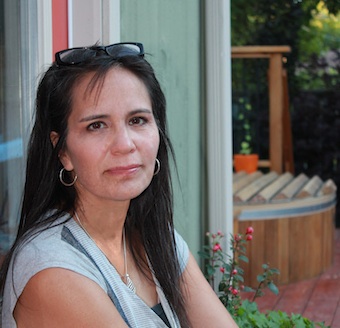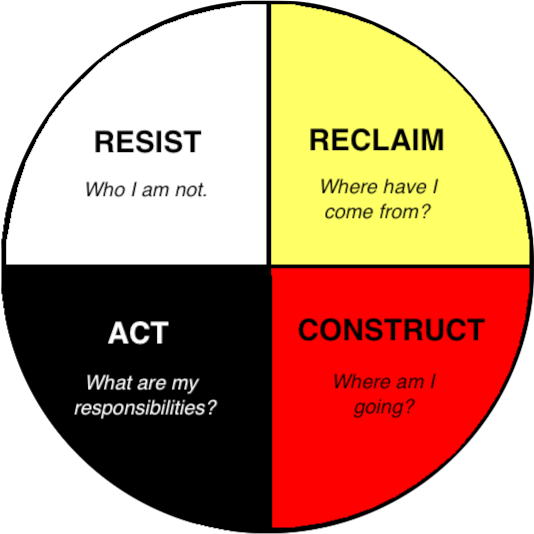“[M]any ideas that pass for Indian thinking are in reality theories originally advanced by anthropologists and echoed by Indian people in an attempt to communicate the real situation.” (Deloria 82)
Similar to Vine Deloria Jr.’s concern with the infiltration of destructive anthropological theories into Native American societies, Native American and Indigenous feminists engage with the internalization of colonial values. This process of critically engaging with values and practices that appear “traditional” but are in reality manifestations of internalized colonialism can be understood as a form of mental and cultural repatriation.

Understanding mental decolonization as repatriation is facilitated by exploring Cree/Métis writer Kim Anderson’s book A Recognition of Being: Reconstructing Native Womanhood. This work explores the concept of the critical practice of tradition (Anderson 34-6), which emphasizes how the colonial influence on many “traditional” practices has rendered them violent to Native American societies and women specifically, and therefore why all “traditional” practices should be met with critical thought.
For instance, Anderson notes the importance of explaining the roots of menstrual taboos that preclude the participation of women in certain ceremonies like the Sun Dance. Without explaining that these taboos exist because menstruation is a time of extreme power for women, these practices can be interpreted as illustrating that Native women are unclean when menstruating, which implicitly perpetrates the violent attitude that Native American women are inherently violable (Anderson 37-9). In this example as in others in her book, Anderson advocates for finding the root values in traditions and to “expand” from there. Anderson acknowledges that in some situations this process means reconstructing traditions in new ways that are flexible to the needs of Native American women, which works against static understandings of Native American “culture” or “identity.”

Linking this work of mental and cultural decolonization to repatriation, I believe that indigenous feminisms, like that of Anderson, encourage an ideological repatriation within their own communities. As explored above, Anderson encourages Native American groups to repatriate within themselves the core values that create positive gender, social, and political worlds, especially for Native American women.
One important note to make is that although colonial influence created the negative traditions Anderson speaks of, Anderson does not involve colonial powers in this healing and decolonizing process (unlike the repatriation work of NAGPRA that involves both settler and Native American groups). I believe this is because Anderson recognizes that outside influence has had a largely negative effect on Native American women, and so she has little reason to believe that things will be any different when trying to heal by taking away colonial values. This is a similar argument to those made by Native American groups concerning their reticence to work with NAGPRA.
Ultimately, if repatriation is defined as “to return to one’s homeland,” the “things” Anderson wants repatriated are the ideological values of the homeland, with the intent of ensuring the homeland becomes and stays a safe and positive cultural and physical space for all of those who claim it as such.
Text and Image Sources:
Anderson, Kim. A Recognition of Being: Reconstructing Native Womanhood. Toronto: Sumach Press, 2000. Print.
Deloria Jr., Vine. Custer Died for Your Sins. New York: Collier-Macmillan Limited, 1969. Print.
http://legacy.wlu.ca/images/contacts_images/3342/3342_website2.jpg
https://354indigenouswomen.wordpress.com/2012/10/01/reconstructingnative-womanhood/
Further reading on/about Indigenous feminisms, thinking about repatriation:
https://unsettlingamerica.wordpress.com/2011/09/08/indigenous-feminism-without-apology/
(I would recommend thinking specifically about how Andrea Smith illuminates the links between “tradition” and heteronormativity.)
Chapter 3 “Colonizing Knowledges” of Linda Tuhiwai Smith’s Decolonizing Methodologies. (Vassar library call number: GN380 .S65 2012)
(I recommend specifically the introduction and sections “Establishing the Positional Superiority of Western Knowledge” and “The ‘Authentic, Essentialist, Deeply Spiritual’ Other” in this chapter.)
